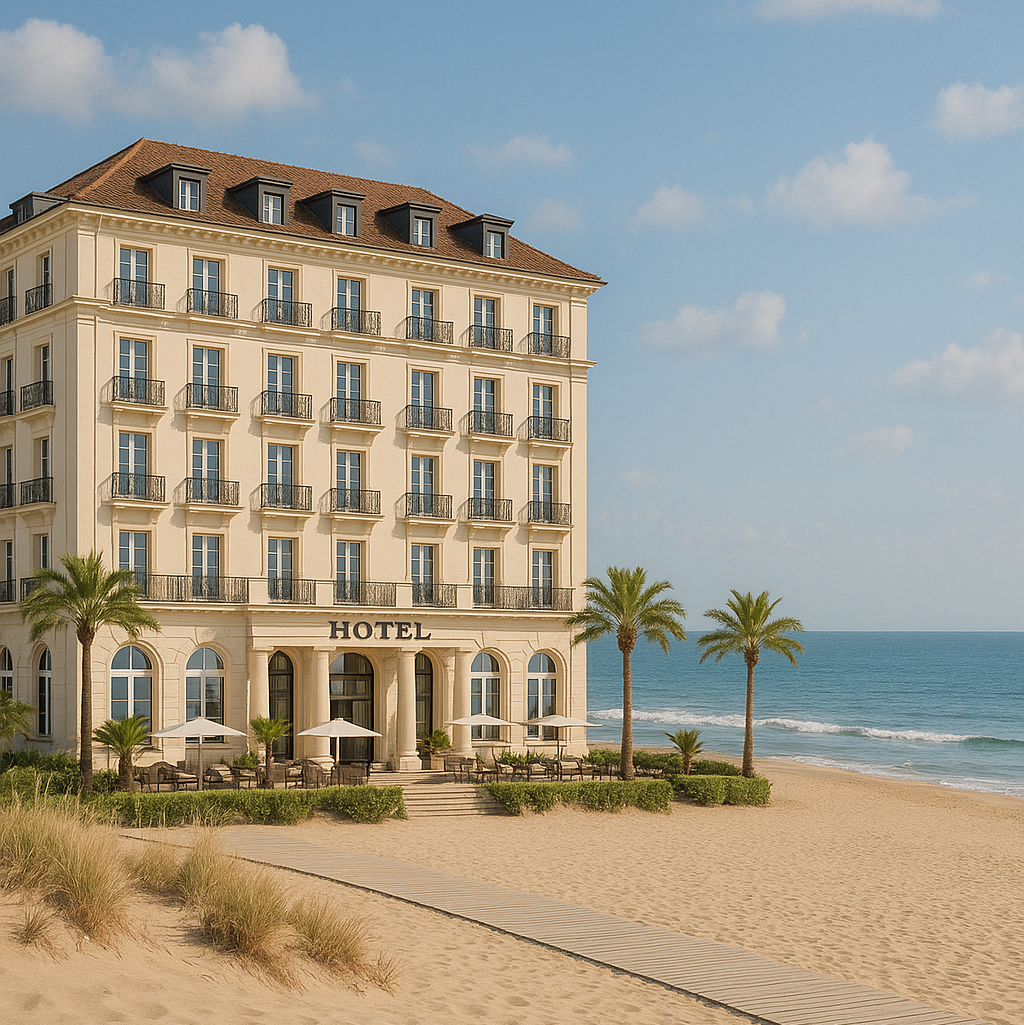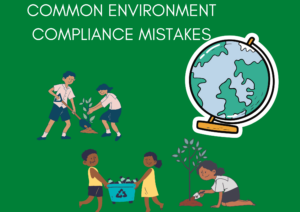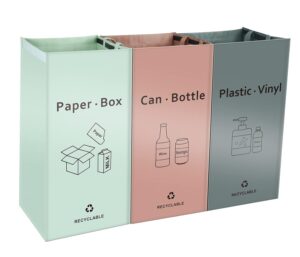When we think about hotels, we usually picture fluffy towels, room service, and elegant lobbies. But behind the scenes, hotels can be massive consumers of water, energy, and chemicals and significant generators of waste. That’s where environmental auditing comes in.
An environmental audit of a hotel is like a wellness check-up for its environmental footprint. It’s not just about paperwork, it’s about making sure the hotel is not unknowingly draining resources, polluting its surroundings, or violating environmental laws.
So, what exactly does an environmental audit for a hotel look like? Let’s unpack that.
Why Environmental Audits Matter in Hospitality
1. It’s the Law
In most countries, including Kenya, hotels are required by law to comply with environmental regulations under frameworks like the Environmental Management and Coordination Act (EMCA), 1999 and the Environmental Impact Assessment and Audit Regulations, 2003.
Failing to conduct periodic audits or breaching environmental permits can lead to fines, shutdowns, or even legal action.
2. It’s Good for Business
Eco-conscious travelers are on the rise. Guests today want to stay in places that walk the talk on sustainability. An audited hotel that demonstrates water and energy conservation, proper waste disposal, and green certifications can attract more customers and earn loyalty.
3. It Saves Money
Environmental audits often uncover energy inefficiencies, water wastage, or poor chemical handling practices, things that, when corrected, can save serious cash.
4. It Reduces Risk
From oil spills in the kitchen to unfiltered greywater discharge, environmental risks in hotels are real. An audit helps identify these threats before they become disasters.

What Do We Look For During a Hotel Environmental Audit?
Environmental auditing in hotels is broad, but here are the main areas we focus on:
1. Legal and Regulatory Compliance
Let’s start with the paperwork. Auditors first check whether the hotel has:
- A valid Environmental Impact Assessment (EIA) License.
- An Effluent Discharge License (EDL) (if there’s wastewater discharge into public systems).
- Permits for waste disposal and transportation.
- Environmental policies and previous audit reports.
Tip: Always keep these documents in a dedicated compliance file for easy reference.
2. Waste Management
Hotels generate a surprising amount of waste, from guest room trash to food waste from the kitchen. Here’s what we examine:
- Segregation of waste into recyclables, organic, and hazardous.
- Use of clearly labeled, color-coded bins.
- Contracts with licensed waste handlers.
- Proper storage of waste (covered, leak-proof, not near food areas).
- Records of waste disposal or recycling.
Failing to manage waste properly not only harms the environment—it attracts pests and can scare off guests!
3. Water Use and Conservation
Water is gold in the hotel business. We check:
- Sources of water: Municipal supply, boreholes, rainwater harvesting.
- Abstraction permits from Water Resources Authority (WRA).
- Existence of meters and water consumption logs.
- Installation of low-flow taps, dual flush toilets, and recycled water systems.
- Greywater and blackwater treatment and discharge.
Conserving water isn’t just about saving money, it’s about preserving a resource that is rapidly becoming scarce.
4. Energy Management
Energy audits are a critical part of an environmental audit in a hotel.
We look into:
- Sources of energy: Electricity, LPG, diesel generators, solar.
- Energy bills and consumption trends.
- Use of energy-efficient appliances like LED lighting and inverter A/C units.
- Generator emissions, fuel usage, and noise control.
- Existence of an Energy Management Plan.
Hotels with high energy efficiency scores can often qualify for tax breaks or green certifications.
5. Air Quality and Noise Pollution
Hotels must be good neighbors.
Auditors assess:
- Air emissions from boilers, kitchen exhausts, generators.
- Whether the hotel meets National Air Quality Standards.
- Use of scrubbers or filters for emission control.
- Noise levels, especially from nightclubs, events, or generators.
- Noise complaints from neighbors or guests.
A hotel that disturbs its neighbors won’t last long in the hospitality industry.
6. Effluent and Sewage Management
Effluent mismanagement is one of the biggest violations we see in hotels.
We check:
- Sewage treatment systems (STPs or septic tanks).
- Greywater reuse (from showers, laundry, etc.).
- Effluent monitoring reports—testing for BOD, COD, TSS, pH, etc.
- Validity of the Effluent Discharge License.
- If sludge or biosolids are being handled correctly.
Untreated effluent contaminating nearby rivers or boreholes is a fast track to legal trouble.
7. Chemical & Housekeeping Management
From floor cleaners to pesticides, hotels use a lot of chemicals.
We look into:
- Storage conditions—are chemicals clearly labeled and stored in lockable cabinets?
- Availability of Material Safety Data Sheets (MSDS).
- Use of PPE by housekeeping and maintenance staff.
- Spill kits and response procedures.
- Safe disposal of expired chemicals.
One improperly stored chemical can result in poisoning, fires, or environmental contamination.
8. Environmental Health & Safety (EHS)
We also check:
- Presence of emergency equipment like fire extinguishers, first aid kits, spill response kits.
- Training records—are staff aware of EHS policies and emergency protocols?
- Pest control records (preferably eco-friendly methods).
- Whether guests are exposed to environmental hazards like mold, smoke, or stagnant water.
9. Policies and Environmental Documentation
Finally, we want to see that the hotel has:
- An Environmental Policy, displayed for staff and guests.
- A working Environmental Management System (EMS).
- An Environmental Committee or designated officers.
- Action plans from previous audits.
- A register for community or guest complaints.
Good documentation is the backbone of compliance and continuous improvement.

What Does Compliance Look Like?
In a compliant hotel:
✅ Environmental permits are current
✅ Waste is well-managed and documented
✅ Water and energy use is monitored and optimized
✅ Effluents are treated and tested
✅ Staff are trained and aware of EHS protocols
✅ Records are tidy, available, and up to date
Non-compliant hotels might face:
🚫 NEMA notices or shutdowns
🚫 Fines and legal liability
🚫 Bad reviews and poor brand reputation
🚫 Increased operational costs due to inefficiencies
Final Thoughts: Hospitality Meets Sustainability
Environmental auditing in hotels is no longer just a formality, it’s a necessity. With increasing environmental regulations and rising guest expectations, hotels must take real, measurable action to operate sustainably.
As auditors, our job isn’t to punish, but to guide. We help hotels find practical, cost-effective ways to reduce their environmental impact while staying compliant with the law.
So the next time you walk into a hotel lobby, remember, sustainability starts behind the scenes, and a solid audit is where it all begins. Find more environmental auditing posts here.
Want to Learn More?
Stay tuned for upcoming posts on:
- Environmental Auditing in Hospitals
- Construction Site Environmental Management
- How to Prepare for a NEMA Audit
📩 Get in touch at valeriekinoti@gmail.com for environmental audits, consultation or comment with your thoughts, questions.



